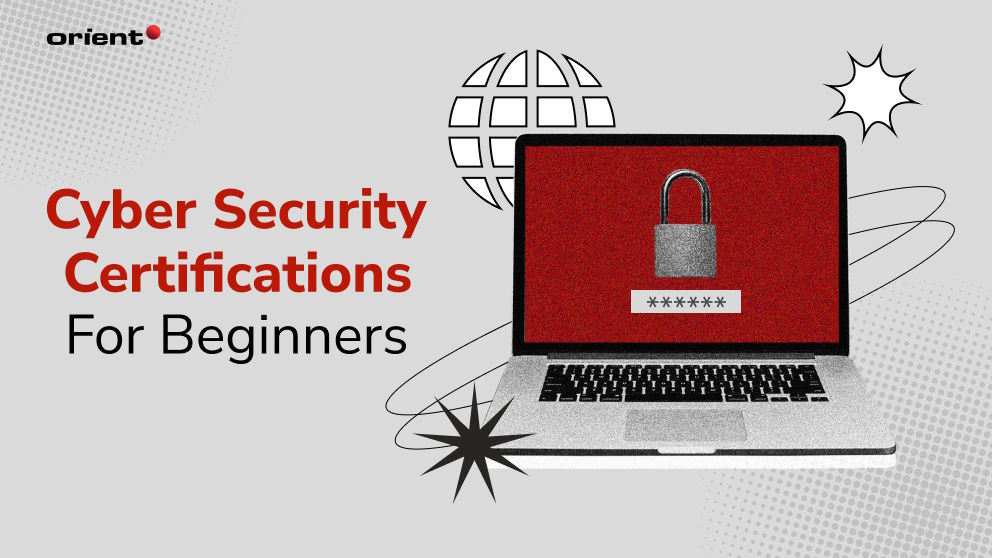
Cybersecurity has become one of the most pressing challenges in the digital age. With cybercrime predicted to cost the world $10.5 trillion annually by 2025, businesses and individuals alike are prioritizing security to safeguard their sensitive information and digital assets. But with the vast number of cybersecurity certifications, courses, and programs available today, how do you decide which are right for you? This blog takes a closer look at how to choose the right Cybersecurity Programs to help you establish a robust and secure future.
Understanding the Importance of Cybersecurity Education
Cyberattacks are becoming increasingly sophisticated, placing immense pressure on organizations to defend themselves against everything from ransomware to phishing attempts. According to recent statistics, 43% of cyberattacks target small businesses, yet only 14% of these businesses are prepared. This glaring gap highlights a growing demand for skilled cybersecurity professionals.
By investing in cybersecurity education, individuals can position themselves for lucrative career opportunities while helping mitigate this global security threat. For businesses, ensuring employees are well-versed in fundamental or advanced cybersecurity measures is essential to reducing vulnerabilities.
What Should You Look for in a Cybersecurity Program?
Not all cybersecurity programs are created equal, so selecting one that aligns with your goals is key. From entry-level certifications to advanced specializations, your choice will depend on your career aspirations, current skill level, and the specific security challenges you aim to tackle.
1. Define Your Career Goals
Your choice of program should reflect your long-term aspirations. If you’re just starting in the field, foundational certifications like CompTIA Security+ or Certified Ethical Hacker (CEH) offer essential knowledge for beginners. However, if you’re an experienced IT professional looking to specialize, consider advanced certifications like Certified Information Systems Security Professional (CISSP) or Offensive Security Certified Professional (OSCP).
For professionals pursuing roles like cloud security analyst or incident response expert, programs focused on cloud computing security (e.g., AWS Security Specialty) or incident management training would be highly relevant.
2. Check Accreditation and Recognition
When choosing a program, ensure it is offered by a reputable institution or organization. Certifications like CISSP from (ISC)² or CISM from ISACA are globally recognized and held in high regard by employers. For university-based programs, look for those accredited by trusted agencies to ensure quality education.
3. Depth of Curriculum
Effective cybersecurity programs should cover a range of topics, including but not limited to:
Networking fundamentals
Cryptography
Risk management
Security incident response
Threat analysis
A well-rounded curriculum will provide both theoretical knowledge and practical hands-on learning through labs or simulations to prepare you for real-world challenges.
4. Practical Experience and Labs
Cybersecurity is a highly practical field, so hands-on experience is invaluable. Programs that incorporate ethical hacking labs, penetration testing exercises, or simulations of real-world attacks will help reinforce theoretical knowledge and build confidence. Look for providers offering lab environments like Cyber Ranges to practice your skills.
5. Program Flexibility
Whether you’re a working professional or a full-time student, flexibility matters. Online programs and self-paced courses allow learners to study at their convenience, while in-person bootcamps or part-time courses work well for people who thrive in structured learning environments.
Staying Ahead with Cybersecurity Trends
Cybersecurity is a constantly evolving field, requiring you to stay updated on new threats and technologies. Programs and certifications that emphasize ongoing learning with frequent updates are particularly beneficial.
Emerging areas like artificial intelligence (AI) in cybersecurity, blockchain for secure transactions, and zero-trust architectures are trending today. Enrolling in programs that cover forward-looking topics ensures you remain ahead in the industry.
Furthermore, statistics reveal that businesses with proactive cybersecurity measures experience 70% fewer incidents compared to those relying solely on reactive measures. By choosing programs focused on modern and proactive security strategies, you can future-proof your career while adding significant value to any organization.
Building a Secure Future Today
The sheer number of cybersecurity programs available can feel overwhelming, but following these guidelines will help you make an informed decision. Whether you’re looking to begin your career in cybersecurity or elevate your expertise to the next level, selecting the right program will pave the way for a successful and secure future.